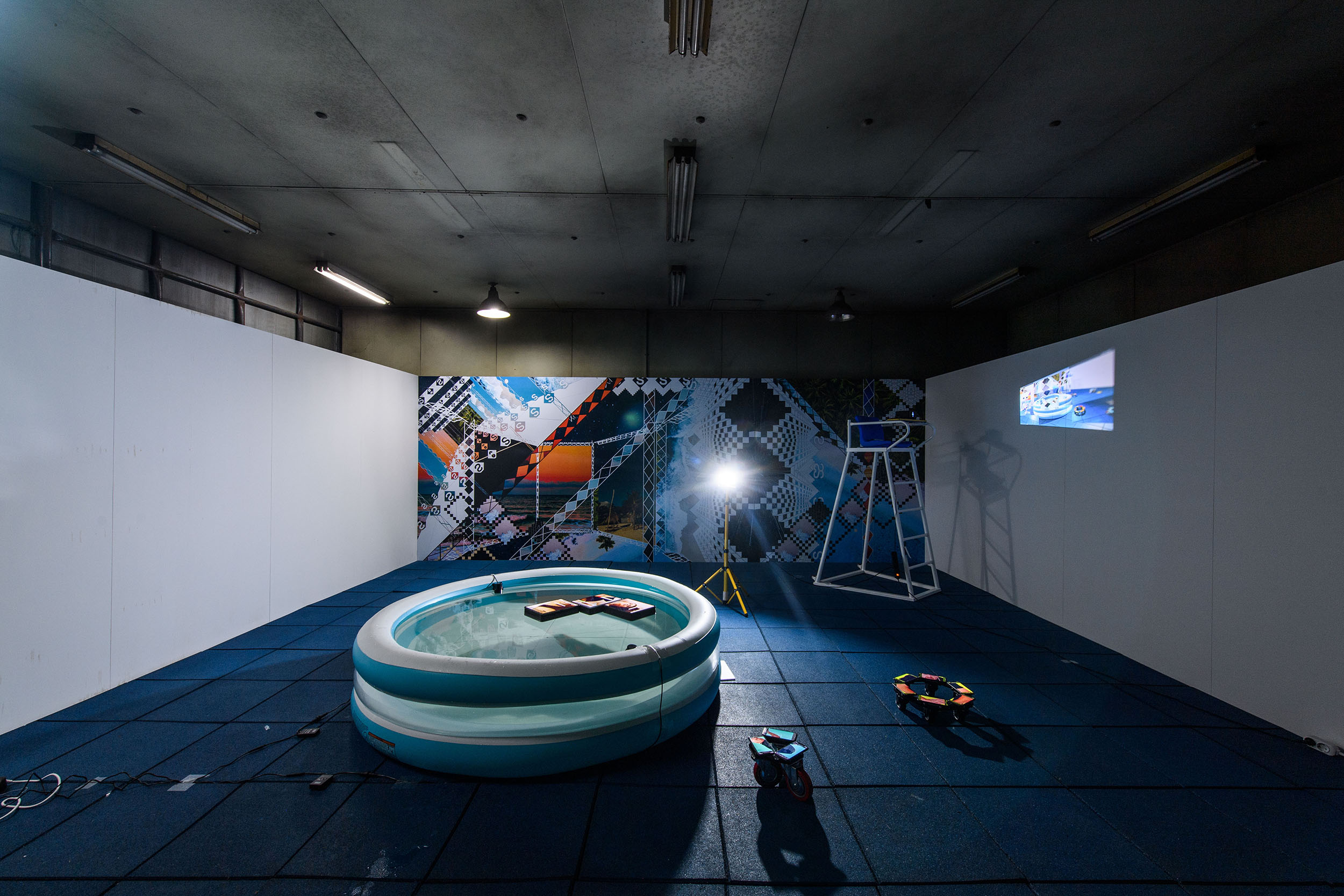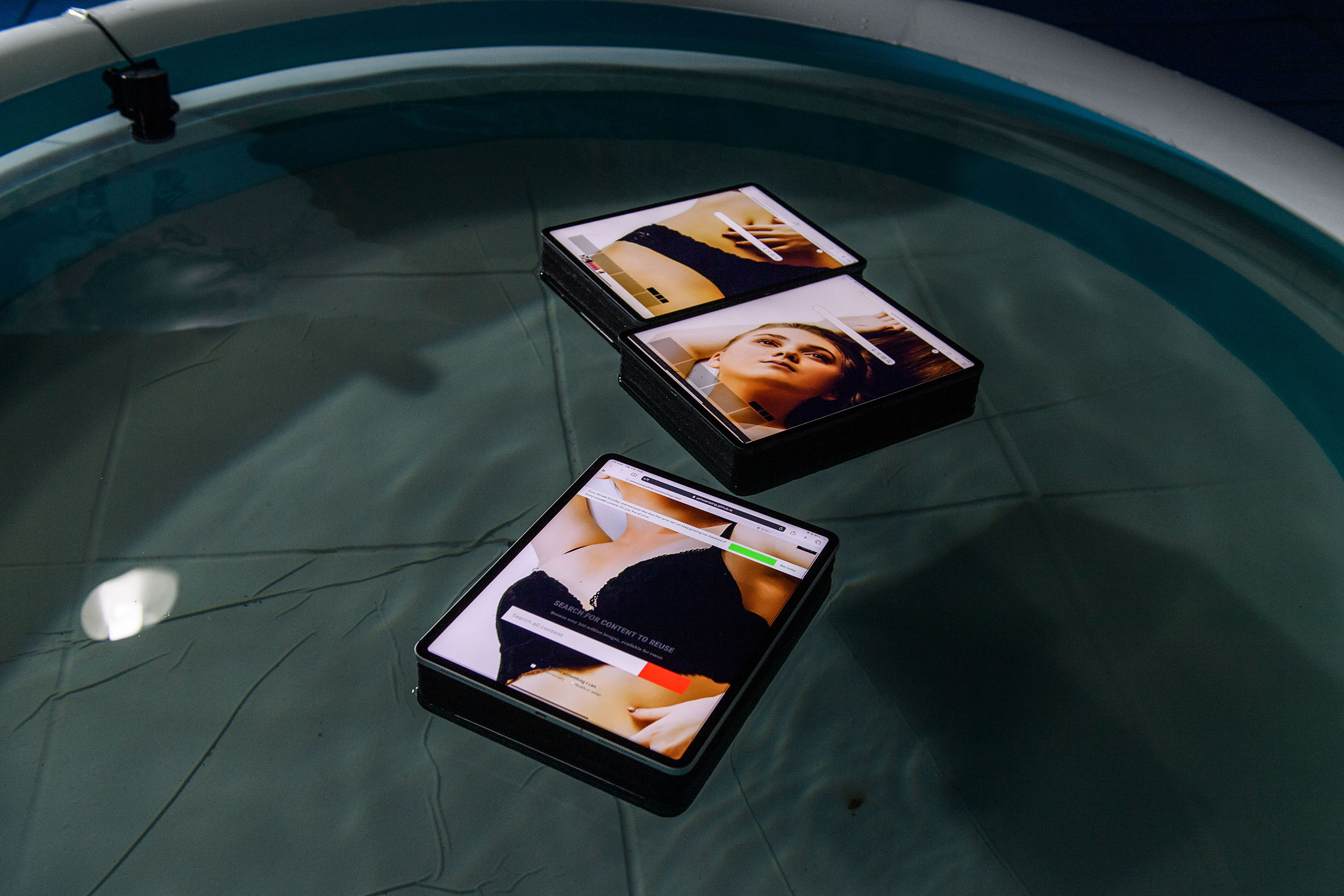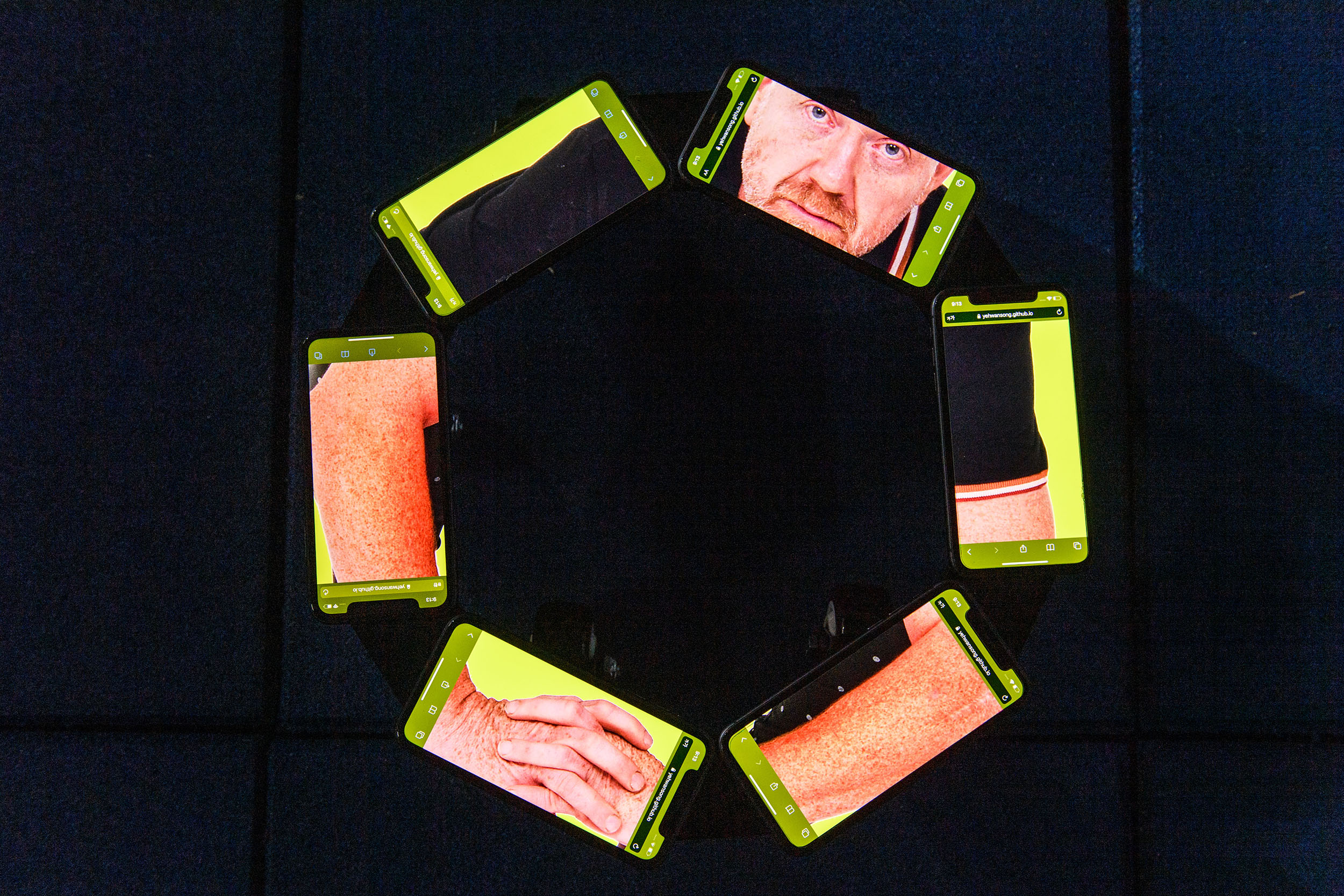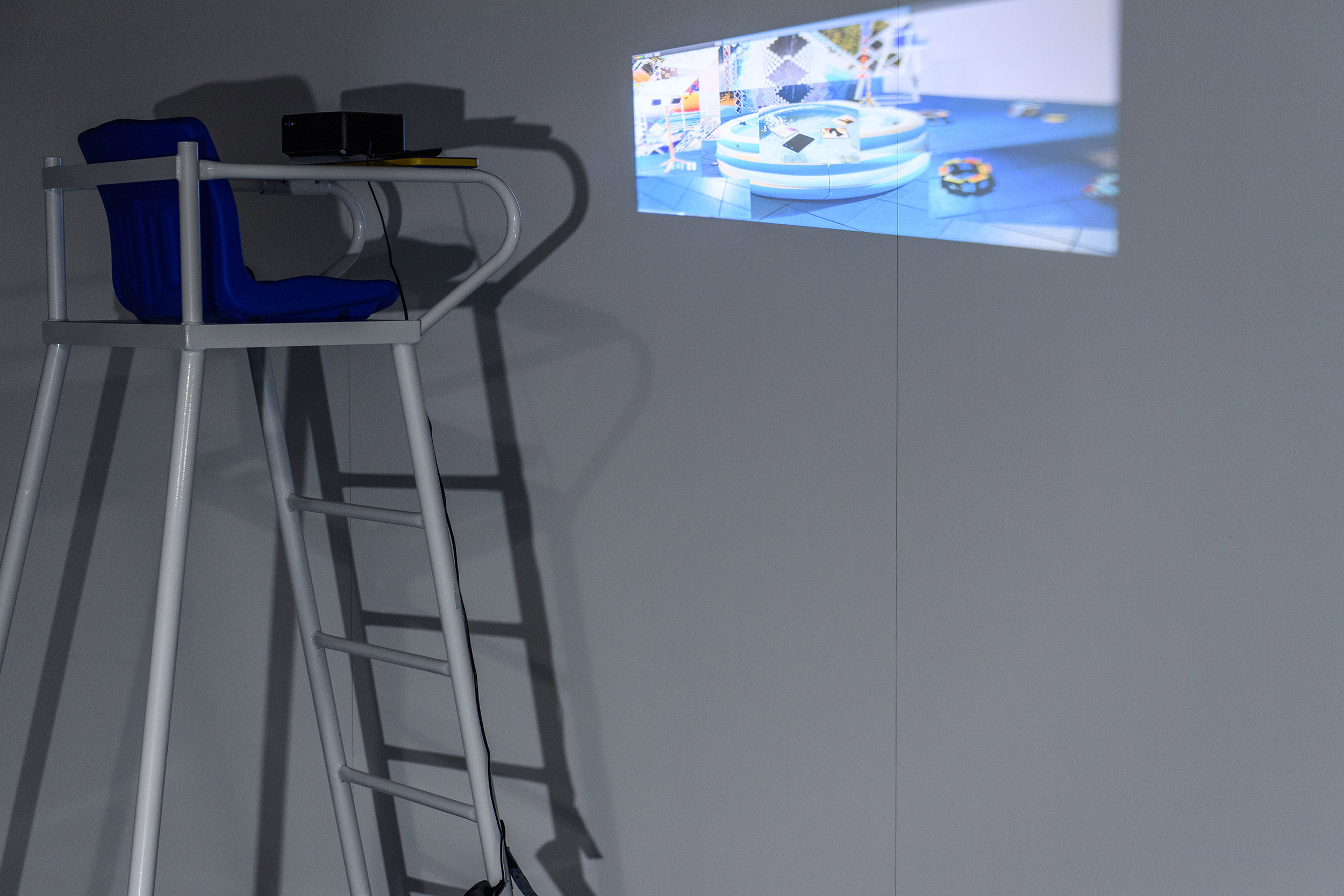
Song Yehwan, a web artist and designer, raises questions about the standardized web interface design of giant platforms. He has been working on designing website interfaces and tools that achieve a user-friendly concept pursued by users while presenting various designs and environments according to unique content.
〈Village Wide Web〉 shows mobile devices “surfing” on the water or making “rings” on a beach resort-like background, as another gaze watches from the safety of a lifeguard chair. Since the emergence of the World Wide Web, words that express web behavior by comparing them to actual activities or objects, have been summoned back to the physical environment. At some point, the emergence of web platforms produced and operated by individuals began to decline, with the design of web interfaces having become uniform in the name of pursuing user convenience resembling mass-produced industrial products. We believe in the authority of a uniform interface, accept its contents without criticism, and sometimes panic when we leave the custom-solid template. Is the World Wide Web today a place where everyone can connect and share information when there is a population who can access the web only through major platforms and net neutrality is threatened? On the contrary, have we become the subject of subordination and equalization? Therefore, 〈Village Wide Web〉 implies that the openness and equality of the World Wide Web today is false and also challenges the falsehood of the so-called village. It proposes a smaller network, breaking away from the fictional utopia that connects all users around the world. In this network, users know exactly who is connected, sharing information in real-time, and forming close ties. Devices surfing in the exhibition hall and devices making rings form their own village networks to share information in real-time. The village network structure has its individuality and respects everyone else’s individuality. 〈Village Wide Web〉 allows the audience to ask questions themselves through various layers of the project, including the "surfing" we imagined in the early days of the Internet and the "rings" that connect us to each other.






